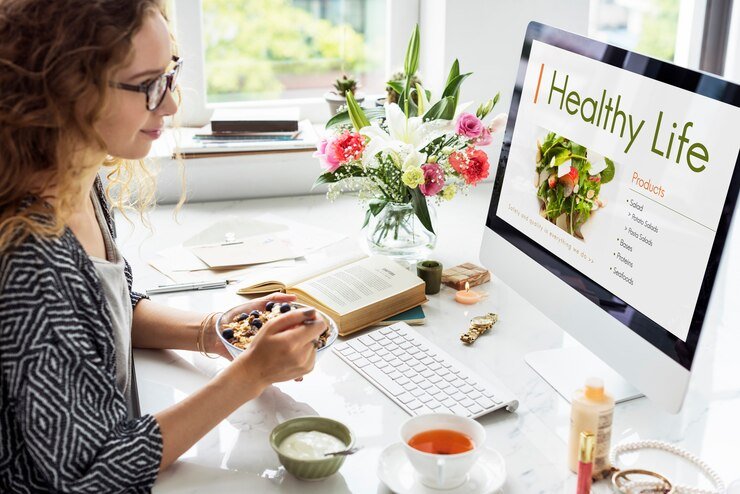The Starting Point for Genuine Change
To seek genuine change in our lives requires a starting point. In many of my articles, I use the expression, “Every journey starts with one step.” The journey starts by looking at how we understand ourselves and our relationship with Planet Earth. People need to attempt a non-judgemental self-evaluation. We need to evaluate our integrity further to practice our values as we intend, hopefully. My role as a Peer Specialist, and those who do similar work, also use the philosophy of non-judgemental actions and a one step at a time progression.
Exploring Options and Values
Every individual has options in life. These options allow each of us to assess our thinking and decide if we need to make better arrangements for living. There are situations we will find ourselves in to use our models for showcasing our values. Or perhaps, whether these systems in our mind were ambiguous and inherited from our ingrained histories and facts.
Defining Wellness Through Routines
Here is what is essential. Routines and the thinking that envelop our minds must define wellness in the healthiest manners. Our lives reflect these routines, so they must move us towards healthier living. The human response to worldly conditions should also be beneficial. In my opinion, these are methods that pass through the freedom of choice and autonomy. Learning, understanding, and taking note of the history we pass-through can be overwhelming. All this processing may require relearning, but relearning healthy practices is the most viable way of evolving.
Understanding Culture
Are we now ready to ask ourselves, what is ‘culture’? The answer is, culture is how we characterize the sum of knowledge as it passes through our sharp lens for viewing and understanding history. This lens and history include the history and values of the collective people, language, religion, cuisine, social habits, music, and the arts. It results from our belief systems that are embodied and then shared as a group experience. This shared knowledge verifies and keeps these guiding principles and behaviors, often called traditions. In these instances, we are not even aware of our behaviors/practices. The awareness marks humanity’s unquestionable and unmistakable collective beliefs and experiences.
The Dark Side of Traditions
Many traditions can also perpetuate or hide many awful experiences for most individuals within that community. For example, we can often see a history of mistreatment of people in a society based on race, ethnicity, gender, and disability. In addition, this conceals events that were not popular. There are even traditions that seek to preserve, ignore and rationalize the adverse treatments of people forever. Peer Specialists, like myself, do their best when handling these situations. The lived experiences of peers inform our practice and beliefs. These ideas continue to “modify a culture” in mental health through our collective well-being.
Modifying Culture for Wellness
To “modify a culture” based on wellness, we have to find out which values support our ideas of wellness and which ones we have inherited through our culture’s belief system. As Peer Specialists, we have developed many new values from our lived experience of getting well and staying well despite the adversities we have encountered. Becoming a wellness culture requires an ongoing, conscious effort to evaluate, question, and be self-determined to uphold those beliefs in our lives. To support the relationships enabling well-being for others and ourselves.
Examining Our Internal and External Language
We can check on our own and our neighborhood’s culture. To do this, take a look at both our external language and internal language. These are the conversations that pass through our relationships and our understanding of how we should feel and behave when interacting with other people. There are codes—cultural beliefs embedded in the system that rules the English language. The system directs how we behave in relationships and care for our well-being.
Some of these are internal thoughts such as “I ask too many hard questions; so people will think I am being difficult” or “I am a weak individual because I can not make decisions easily.” Both comments are not based on fact but rather on beliefs about how we, and others, are to be and act. Numerous instances we inherited from our culture. Our values are those beliefs that we consciously choose to say or do. Not always perfect, but it is what we believe.
The Influence of Fear in Culture
Also, in the 2020s, we continue to believe in fear. Terrorists are everywhere, but we do not know how to react. Unfortunately, they are in most culture(s) and do not always come in human form. Two different ways that this occurs. Many people live with the fear of the unknown. This unknown underpins the ideas articulated as time moves ahead. Culture relies on a past and collective shared history.
The Impact of Health on Culture
Another way societies respond is when their physical and mental health is compromised. Over the last few years, a good example is the viruses plaguing most cultures. As we are aware, many individuals have got sick, been hospitalized, and died from this COVID-19 virus. A few vaccines and boosters were invented and helped some. However, as of this writing, no one knows the long term effect of the injections or the virus itself.
The Possibility of Cultural Modification
Changing a culture is impossible because we are changing our beliefs and cultures, definitely not theirs. “Modifying a culture” is all we as humans can ever do. Attempt to make any cultural modifications needs to be with all parties agreeing. Idealistic sure, but if we don’t, we impose our will and strength on others. Modify our own external and internal culture first. Ultimately, we shall be more physically and mentally healthy in our well beings by modifying our culture for the better.
See everyone in the News-Blogs.
Certified Peer Specialist from Long Island.
- Howard Diamond
- Howard Diamond
- Howard Diamond
- Howard Diamond









